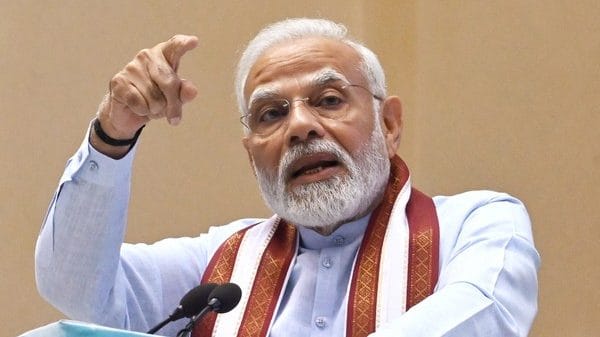Prime Minister Narendra Modi has an opportunity to elevate himself as a global statesman, something he so badly wants to be perceived as. But that would come at a cost he must pay — a refusal to succumb to the lure of easy votes.
The Prime Minister made several commendable promises at the recently-concluded COP27 talks, one of which was that non-fossil fuel sources would make up half of India’s energy mix by 2030. This would certainly be a great achievement. However, back home, government officials and ministers have been undermining those promises.
The compulsions of Modi govt
It is a hard fact that gas prices have about doubled over the last year. With India significantly dependent on imported gas for our gas-based power plants, this is a bad situation to be in. In fact, Finance Minister Nirmala Sitharaman has said as much, adding that we will have to take some environmentally-unfriendly decisions to address the issue.
“At this stage, if natural gas is going to be beyond our means, obviously you are looking at reverting to coal to an extent because you need the base level of electricity to be generated and that just cannot be done through solar or wind energy,” the Finance Minister said at The Brookings Institution in Washington during her October trip to the US.
She’s not a lone voice in this. Unnamed officials in the government have begun testing the waters by slipping comments to journalists, saying that India has no choice but to raise its coal production since natural gas production has been stagnant, and imported gas is becoming too expensive.
These anonymous quotes are a great way for the government to gauge the reaction to a particular plan before actually making an official announcement or decision. Keep an eye out for an increase in output of coal by Coal India, the country’s largest coal producer.
Now, this is where PM Modi needs to rise to the occasion. It would be easy for India to keep energy inflation relatively low by resorting to using coal instead of other more expensive–but cleaner–sources. This is a politically attractive proposition. By continuing to import Russian oil and risking the West’s ire, India has already made clear to the world that cheap energy is an essential part of its national policy.
Also read: Indian banks are heading into a trap. High inflation and interest rates are a deadly mix
Tough decisions make global leaders
But India has a responsibility to the world. If the Prime Minister wants to be seen as a true statesman, a world leader, then he must make the harder choices and deliver on the promises he has made to the world, even if this doesn’t reap dividends politically at home.
The harder choices would be to shun coal and instead follow through on clean energy commitments. There are several ways to do this, all of them squarely in the realm of government policy. Let’s take nuclear energy, for example. The much-celebrated 123 Agreement with the US was ratified in 2008.
While it was a civil nuclear deal, not a single nuclear power plant has been set up in India since then. In fact, the country’s nuclear energy capacity has only grown by 2.6 GW since 2009, a dismal performance by all measures. In 2016, the Modi government and the US jointly announced a deal wherein the two countries agreed to move ahead with the construction of six nuclear reactors in India. None of that has come to fruition. If Modi wants a nuclear power plant, it will happen. It only depends on how badly he wants one.
Similarly, it is government policies that are holding back other non-fossil fuel sources of electricity. In December 2017, the government introduced a reverse-auction bidding process for the wind energy sector under which bidders would bid for projects on the basis of the tariff at which they would sell electricity. The lower the tariff, the stronger the bid.
This new policy proved to be so unpopular that the capacity addition in the wind sector–which averaged about 3.3 GW a year in the four previous years–fell to just 0.8 GW in 2018-19. The next year saw just about 1.1 GW of capacity added.
The fact of the matter, experts in the wind energy sector say, is that wind is too variable a source of energy for reverse auctions to work. If companies are competing for how low they can sell electricity for, the risk is that many of their projects could become unviable if the price of producing wind energy rises, or if output falls.
This is an easy fix. The policy simply needs to include provisions that reduce the risk element for wind energy developers. According to reports, the government is already working on this. But it needs to be done sooner rather than later.
The other area the government needs to address is rooftop solar. PM Modi had set a target of 40 GW of rooftop solar capacity by 2022. We have about 7.5 GW right now. The main reason for this is that states are subsidising the price of household electricity, and so people aren’t finding it worth their whiles to invest in rooftop solar systems. If you’re getting cheap power, why would you put in a few lakhs to make it even cheaper?
This is a trickier problem. Cheap power tariffs are a favourite vote-garnering tool across party lines. Encouraging states to increase their tariffs is going to be a difficult task, even if it is financially necessary.
Coming through on the commitments he made at Sharm El Sheikh by increasing nuclear and renewable energy capacities would elevate PM Modi’s international standing, even if that means giving up on some additional votes that cheaper coal-fired power might win him. It’s time to grow from mass leader to global statesman.
Views are personal.






